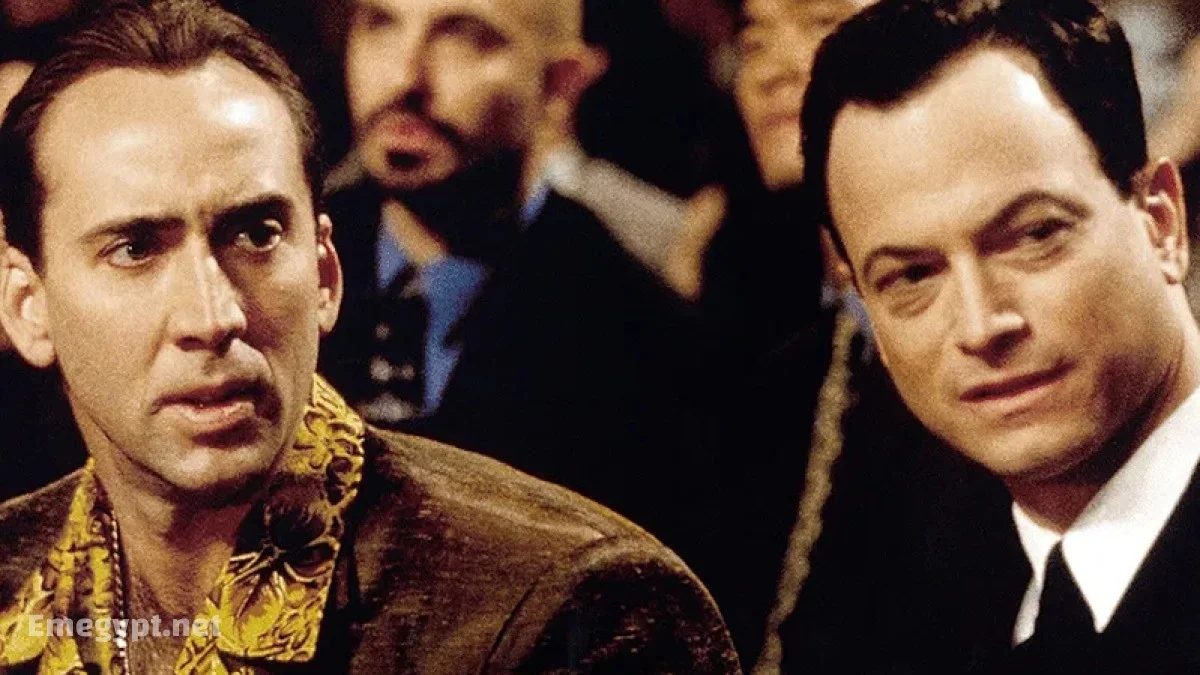
Brian De Palma and His Distinctive Approach
Brian De Palma’s filmmaking is known for its emphasis on surveillance, deception, and shifting perspectives. In Snake Eyes 1998: Behind the Scenes of Nicolas Cage’s Intense Thriller with Charles Kirkland, De Palma used these themes to full effect, transforming what could have been a straightforward whodunit into a study of corruption and human weakness. His signature techniques—split screens, sweeping camera movements, and layered visual storytelling—are woven throughout the film.
A centerpiece of De Palma’s vision was the nowfamous opening sequence, an extended Steadicam long take that follows Nicolas Cage’s character Rick Santoro as he navigates through the chaotic atmosphere of the casino arena. This ambitious shot required intricate choreography, showcasing De Palma’s mastery of tension and atmosphere.
David Koepp’s Storytelling and Narrative Layers
Screenwriter David Koepp collaborated with De Palma to craft a screenplay that balanced suspense with sharp commentary on power and morality. Charles Kirkland’s assassination is more than just a plot trigger—it symbolizes the fragility of political systems and how personal ambition can corrupt justice. The narrative unfolds through multiple points of view, keeping audiences uncertain of who can be trusted.
Filming in Atlantic City and Montreal
Although the story is set in Atlantic City, many scenes were filmed at the Montreal Forum, where production could better control largescale sequences. Atlantic City locations, including the Trump Taj Mahal, were also featured to anchor the film in a realistic setting.
Key Locations Used in Snake Eyes 1998
| Location | Purpose in Film | Notable Features |
|---|---|---|
| Montreal Forum | Main arena and casino interiors | Allowed full control of lighting and crowd shots |
| Trump Taj Mahal, Atlantic City | Exterior shots | Realworld connection to gambling culture |
| Various Atlantic City streets | Establishing shots | Enhanced authenticity of setting |
The Role of Charles Kirkland in the Thriller
Charles Kirkland, portrayed by Joel Fabiani, is central to the unraveling of the film’s conspiracy. His assassination during the boxing match sets Nicolas Cage’s Rick Santoro on a collision course with betrayal, greed, and moral compromise. Kirkland’s death is not only the film’s dramatic spark but also a metaphor for the collapse of institutional trust.
Deleted Ending and the Lost Tidal Wave Sequence
One of the most fascinating behindthescenes stories is the original ending that never made it to theaters. De Palma initially planned for a climactic tidal wave to crash into the casino, delivering a spectacular conclusion to the storm hinted at throughout the film. The sequence was partially shot but ultimately scrapped due to cost and narrative pacing concerns. The final cut relies instead on more intimate characterdriven drama, though fans and critics continue to speculate on how the unused ending might have reshaped the film’s legacy.
Critical Response and Box Office Performance
Snake Eyes 1998: Behind the Scenes of Nicolas Cage’s Intense Thriller with Charles Kirkland was released to mixed reviews. Critics praised De Palma’s visual flair and the gripping opening sequence, but some felt the story lost momentum after its explosive beginning.
Box Office at a Glance
| Budget | Worldwide Gross | Reception |
|---|---|---|
| $73 million | $104 million | Mixed reviews, strong opening weekend |
Despite divided opinions, the film has maintained a dedicated following, with many cinephiles revisiting it for its technical achievements and Nicolas Cage’s intense performance.
How Brian De Palma’s Snake Eyes Lives On
Over the years, Snake Eyes has experienced a resurgence in cultural discussions, especially as audiences revisit its themes of conspiracy, corruption, and deception. The long take remains a case study in film schools, and the character of Charles Kirkland continues to be cited in analyses of political thrillers.
Brian De Palma’s distinctive vision, David Koepp’s layered script, and Nicolas Cage’s electric performance combined to make Snake Eyes a thriller that still resonates more than two decades later. Even with its mixed critical reception, the film holds a unique place in cinema history, remembered as much for what appeared on screen as for the behindthescenes choices that shaped it.
